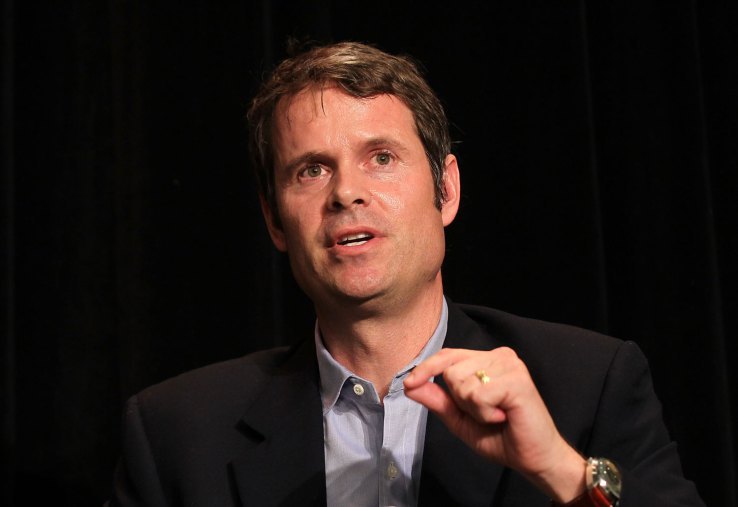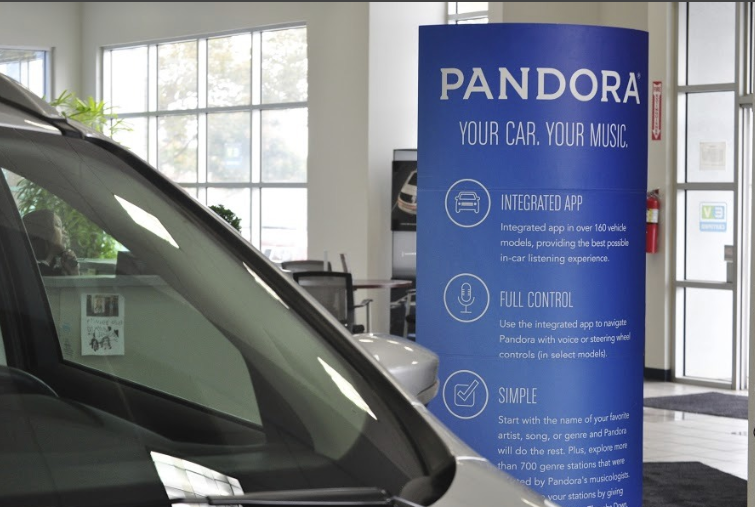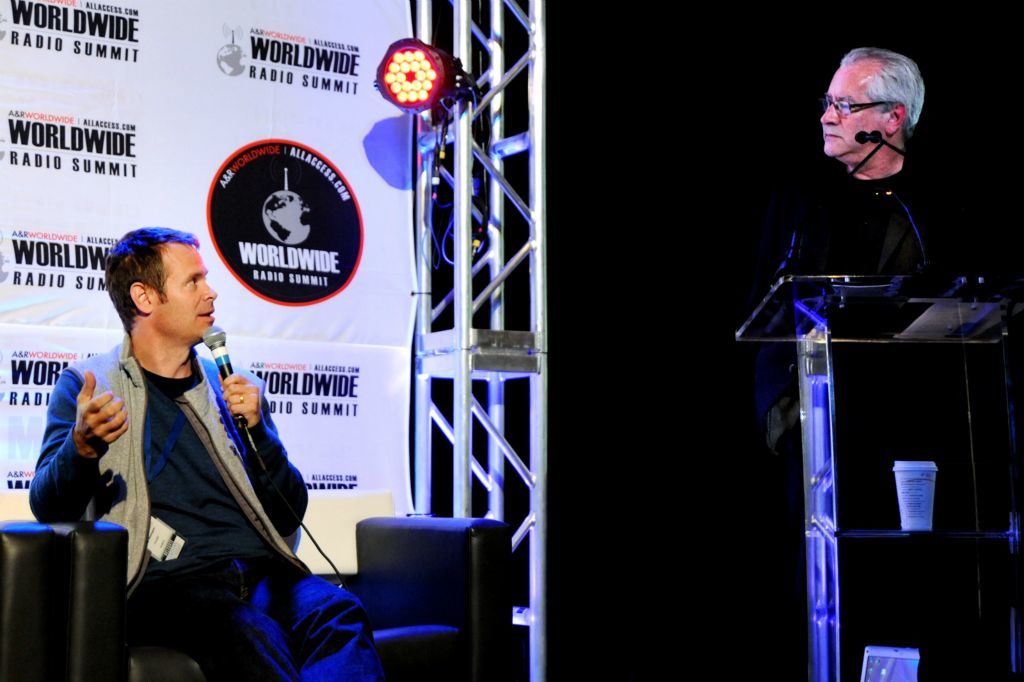
For today’s #TBT post, we take a journey back to July 2017. The year before, Pandora’s founder and long-time wunderkind left the company. Like many “creatives,” Westergren drew criticism in the financial community for what some felt was a lack of business acumen.
Three years later, Pandora was sold to SiriusXM. And it’s been mostly downhill from there. Spotify has leapfrogged past Pandora in a space that’s become more competitive.
As I wrote back then, Westergren was an innovator and a music champion. If you listened to Pandora in the early years, it truly stood out as a source of music discovery. Its “Human Genome Project” was far from perfect, but more often than not, it connected you with new artists and songs you didn’t know about within your favorite genre(s).
Not long after Westergren was shown the door at Pandora, I suggested to one of broadcast radio’s CEO’s the erstwhile streaming exec might make a great content or innovation officer. Back then, most radio companies weren’t exactly making headlines with new, cutting edge ideas. My idea was that Westergren could bring that quality to a legacy media company. As you’ll read in the post, Westergren was a regular radio listener. Suffice it to say, my suggestion was rapidly dismissed as a non-starter and even blasphemous for a radio corporation to bring in a rebel like Westergren.
What ever happened to Tim Westergren? He mysteriously has been out of the corporate eye, and has not turned up at another major tech company (despite my predictions to the contrary). He’s still on Twitter, but hasn’t posted in 11 months. Whatever the case, his presence in the digital music space has been missed. Here’s a look back at the impact Westergren had. – FJ
July 2017
You’re reading today’s headline correctly. Pandora’s departed CEO, Tim Westergren, has been vilified for years in radio circles. (In fact, I’ve drawn a few of those circles myself.) But let’s not forget – Westergren is a true innovator, and deserves praise, primarily because of his impact on both the radio and music industries.
He was one of three founding members of Pandora back in 1999 – and arguably the face of the company. Unlike a lot of people who dream up the next great startup, Westergren’s music passion was the guiding force behind Pandora. It’s probably one of the reasons why he lasted 18 years in a highly competitive arena where they come and they go.
Part of the ire from broadcasters emanates from Westergren’s ongoing aggressiveness toward the radio business that dates back many years. In retrospect, Westergren might have done it differently. But by agitating radio executives, he served noticed that Pandora’s goal was to be more than a player in audio entertainment. His goal was to replace the radio medium as we knew it, and in the process, Pandora had success eroding radio listening and sales.
Last week before the long holiday weekend, Westergren’s time at the company he created came to an abrupt end. In the same announcement, he was relieved of his CEO duties and also departed his company’s board of directors. There’s been a lot of executive comings and goings this year – notably, Uber’s Travis Kalanick, Fox’s Roger Ailes, and American Apparel’s Dov Chareney – all of whom left their companies under pressure due to alleged untoward behavior.
Westergren’s departure from Pandora is nothing like that. With the infusion of capital from SiriusXM and the sale of Ticketfly, it’s obvious Pandora’s board seeks to go into a different direction, given the difficulties of navigating the financial maelstrom of streaming, made more difficult in recent years thanks to Spotify, Apple, Amazon, and others. And yet, you read a lot more about guys like Kalanick and Ailes because of the circumstances leading to their demise. Last week, Westergren did a slow fade.
My experience with Pandora goes back a lot of years. And back in 2009, Westergren visited Detroit on a tour of major markets to promote Pandora. He filled a small movie theater with passionate Pandora fan boys (and girls), eager to hear Westergren’s words. He didn’t disappoint, telling his compelling story about how as a music lover, his goal was to create an improved version of what we knew as “radio.” I blogged about Tim’s tour at that time, suggesting the radio industry should wake up to the threat from streaming in general, and Pandora specifically. Here’s a video snippet from that event I shot with my iPhone.
It was bold vision statements like this one that got under the skin of radio executives:
“We’re very ambitious about what we want to achieve with this company…we’re setting our sights on changing this thing called ‘radio’ completely. Our goal is to replace broadcast music radio with something a lot more personalized and inclusive than it’s ever been before.”
Radio got the message, and Westergren has been demonized by broadcasters ever since. But if you step back and think about what he accomplished with Pandora over the years, it’s an impressive list.
He created a category. Yes, streaming radio existed pre-Tim. But it never achieved mass appeal. Pandora’s “music genome” algorithm was unique, enabling music discovery via artists and songs. For many, Pandora became a gateway drug, introducing millions of consumers to streaming radio. And for many radio execs, Westergren delivered a wake-up call that streaming was going mainstream.
He believed in ubiquity. Westergren’s goal was to be everywhere. And Pandora was one of the first to make its way into the snarling mess of car radio dashboard touchscreens, working painstakingly with every OEM to maintain prime presence in cars. Whether it was on iPhones or refrigerators, a key to Pandora reaching scale was making its streaming music available anywhere and everywhere. In the process, he gave radio another lesson about the importance of being wherever his audience wanted to be.
 He was a brilliant marketer. You remember all those car ads featuring Pandora? Westergren’s company never paid a dime for that exposure. It was the automakers discovering that consumers loved Pandora, and how that P-icon could become a true new car selling point. Later, Pandora would launch an aggressive car showroom visibility campaign, something Pandora’s Geoff Snyder discussed at one of our DASH Conferences.
He was a brilliant marketer. You remember all those car ads featuring Pandora? Westergren’s company never paid a dime for that exposure. It was the automakers discovering that consumers loved Pandora, and how that P-icon could become a true new car selling point. Later, Pandora would launch an aggressive car showroom visibility campaign, something Pandora’s Geoff Snyder discussed at one of our DASH Conferences.
His music passion fueled his business model. Prior to founding Pandora, he worked as a record producer and composer for two decades. Yes, Pandora Media (as it was called back then) was all about music discovery, especially in the early days. Westergren’s love for music was his motivator – not so different from many radio professionals who were similarly inspired.
He’s a great storyteller. Yes, a part of that skill is hitched to his belief in Pandora as a company, a brand, and a platform. But if you’ve ever spoken to Westergren or heard him speak, his sincerity is impressive. Like a great PD who believes in his station, Westergren has charisma and charm that helped Pandora grow its streaming footprint.
He created a sales machine. Using (mostly) former radio people to staff its efforts, Pandora struggled with its music royalty fees, but clearly had a sales impact on the radio business. Talk to GMs and GSMs in larger markets, and most will admit that Pandora’s sales efforts were impressive and effective.
He truly has an appreciation for radio. Back in 2015 at the Worldwide Radio Summit, Westergren was on a panel moderated by my  brother Paul. He talked about how he and his kids listen to radio each day, and how he coveted radio’s elegant “one button solution.” While Westergren’s stated goal was to one-up radio, his strategy was always about trying to create a better version of a medium he respects.
brother Paul. He talked about how he and his kids listen to radio each day, and how he coveted radio’s elegant “one button solution.” While Westergren’s stated goal was to one-up radio, his strategy was always about trying to create a better version of a medium he respects.
Post-Westergren, Pandora will obviously be headed in a new direction. Perhaps one of his failings was not adopting a playlist model sooner, allowing newcomers like Spotify to gain the edge in both personalization and customization – values he emphasized back in that 2009 speech.
Becoming too attached to a model – something we know too well inside radio – is a common mistake made in a world of constant change and massive disruption. And in the scramble to recover, Pandora’s efforts to build out a concerts and events model with the acquisition of Ticketfly may have come too late in its cycle to have the desired impact.
So what’s next for Tim Westergren?
Only he knows what he wants to accomplish from here. He could start up a band or launch a record label. But I’m betting he’ll eventually move to reclaim his place on a larger stage.
Unlike other Internet startup founders, Westergren is a smart, likable, and talented visionary who will likely end up being an asset to a music/entertainment company looking to break through or move up a few levels.
For Pandora, it’s the end of an era. For Tim Westergren, it will be fascinating to see where he ends up next.
- Media And Technology In 2025: Believe It Or Not! - April 18, 2025
- In Radio, You Just Never Know - April 17, 2025
- The Secret To Making A Great Podcast (And Great Radio) - April 16, 2025





He’s kept his LinkedIn updated–apparently co-founding a software-development company named cr8tr earlier this year…
http://www.linkedin.com/in/tim-westergren-459b7718
More generally, this reminded me of how much consolidation there’s been in music streaming over the years. While standalones like Spotify and Deezer are still around, many of the other largest players are part of much-bigger companies (like Amazon, Apple, Google/YouTube, and even Block [Tidal’s majority owner now]). And, like Pandora, Slacker hasn’t had much good news recently.
I was one of the early adopters of Pandora, back then in 2000. I subscribed from the first days of it and I saw its growth.
I loved his ‘musical genome’ proposal. I found it totally new and disruptive. I liked the possibility of approving or rejecting the songs that it suggested to me. Their idea of creating a playlist that would faithfully adapt to my musical tastes was amazing, to say the least.
At the time, it was not possible to request a song. One mentioned a title or an artist and the platform offered songs that had similar sound characteristics. The idea was that, knowing my musical taste in depth, Pandora would always play the music that I liked, without the need to create playlists.
However, and due to copyright, Pandora was limited to the United States only, and those of us who lived abroad could not use it again.
For this reason, Deezer and Spotify reached us faster, also with the great advantage that on those platforms it was possible to choose the songs you wanted and in the desired order.
I don’t know what happened to Pandora after it was geoblocked. I don’t know how similar it is today to Spotify. The truth is that, in the rest of the world, Spotify took a great advantage and, clearly, arriving late in the United States, it took a little longer to take the lead, but with its features it was obvious that it would defeat Pandora sooner or later.
Nowadays I don’t need Pandora. Spotify meets all my expectations.
Were they very timid in their attempt? Did they have a slightly myopic vision towards the future? Did they lack ambition? Could they have created a system similar to Spotify? Could they have invested more money to allow users to choose the songs they wanted to hear and to fix the geoblocking issues?
Pandora is good for what it’s designed to do: provide a stream of uninterrupted music while you’re doing something else (eg, drifting off to sleep). It’s kind of like the fine wallpaper in an art museum–easy on the eye (ear) but not to be confused with the displayed art (curated music, by professional air talent if not by yourself playing owned media).
That said, I am a happy subscriber. Wallpaper has its place, and it is preferable to bare walls.